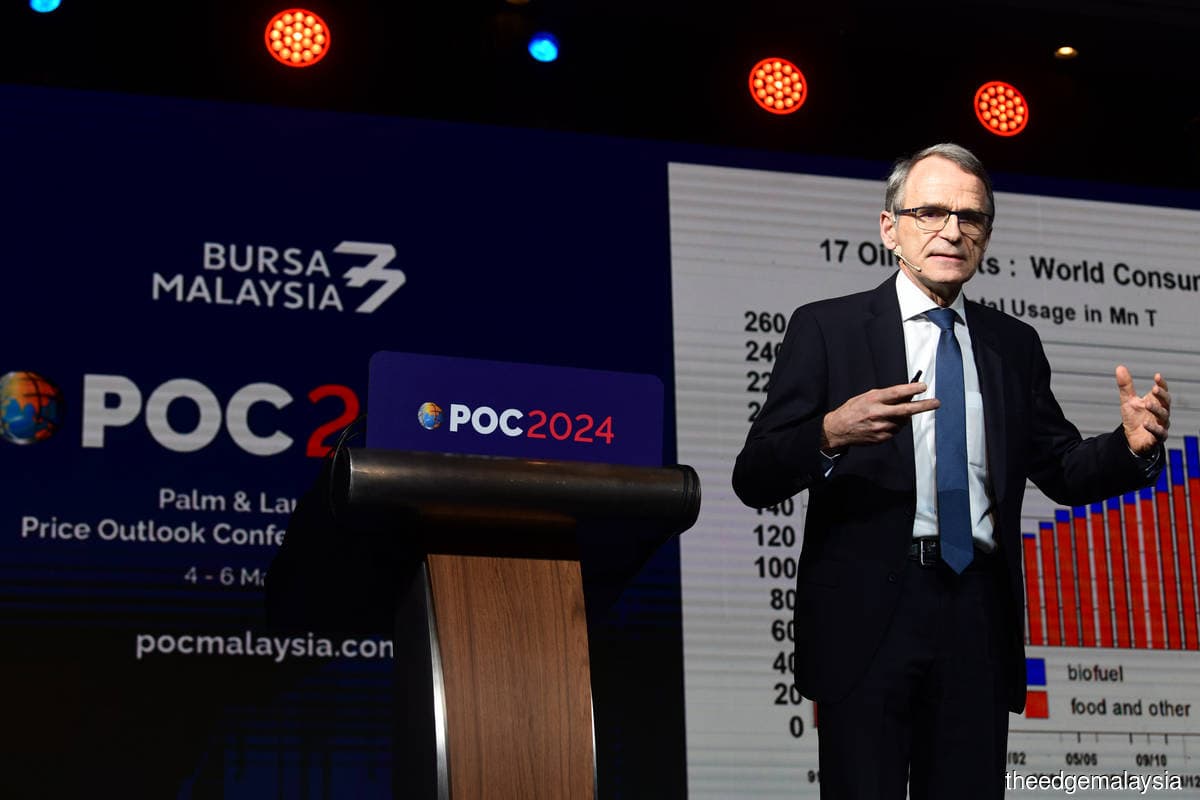
KUALA LUMPUR (March 6): Malaysia must accelerate its replanting exercise to reverse the ageing oil palm structure or risk the market turning to other alternatives in the future, according to ISTA Mielke GmbH (Oil World) executive director Thomas Mielke.
“[If the situation is not reversed], it will be reflected in comparatively higher prices because the world needs rising quantities of oil. The market will decide who is going to cover this. The market will react, if necessary, [with] increased plantings and production of rapeseed, sunflower seed, or soybeans in other parts of the world,” he cautioned.
According to Mielke, there are over 1.7 million hectares of oil palms aged 19 years or older but the rate of replanting in the country remains low.
“The rate of replanting improved a little bit last year at around 130,000 to 140,000 hectares but still way below requirements. This is far too less and less than half of the recommended replanting of 250,000 to 280,000 hectares per year,” he told the audience at the Palm & Lauric Oils Price Outlook Conference & Exhibition.
“So there is a risk that by the year 2025, 35% or two million hectares of oil palm trees shall [be] older than 19 years. This is a problem which has to be solved,” he added.
Meanwhile, he commended the proposal put forward by Minister of Plantation and Commodities Datuk Seri Johari Abdul Ghani to consolidate independent smallholders to increase palm oil yield, as part of the efforts to reverse the ageing oil palm structure in Malaysia.
Mielke reiterated that palm oil production had lost its growth dynamics, as production has slowed down significantly since 2019.
Looking ahead, he expected the annual palm oil production in major countries — including Malaysia and Indonesia — to slow to 1.5 million tonnes or less in the 10 years to 2030 from an average annual growth of 2.9 million tonnes in the 10 years to 2020, he added.
“For the current year, we expect a stagnation or slight decline in Indonesia’s production. For Malaysia, we expect production to remain virtually unchanged at 18.6 million tonnes,” he noted.
